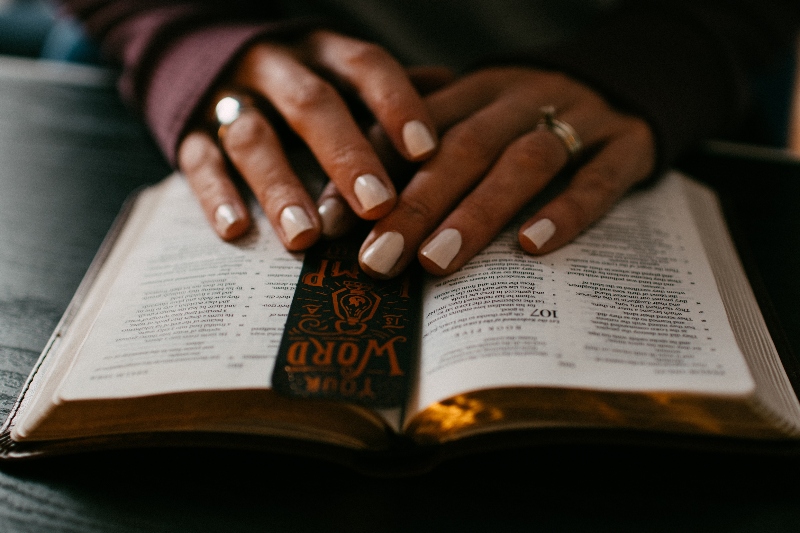'God says to pray more'
A reflection on how we pray; on being open to God and His timing. By Simon Mattholie

I was a student minister at a church in Berkshire in the early 2000s, learning the ropes from a more experienced minister. It was a comfortable church in a cosy neighbourhood and became what many would label ‘successful’ with a new community building, growing congregation and thriving youth work.
I recall the leadership team holding a time of prayer and prophecy with the wider church not long after I started. It was a day carefully managed to ensure nothing critical was spoken about the direction of the church nor its leaders.
People were encouraged to come and share what God had put on their hearts, which the leaders carefully checked before it was more widely shared. We had many ‘rainbows’, ‘waterfalls’ and ‘trees’ in what, to my mind, sounded like spiritual platitudes rather than God’s word to us as a church.
In short, what was shared was that the leaders were all doing the right thing, and the church was doing the right thing, until right at the end of the day, a young girl, no more than seven years old, came forward and grabbed the microphone (bypassing the leaders) and announcing, “God says you need to pray more!”
To me, and perhaps a few others, God had finally spoken. That day has never left my memory.
This word is still relevant today; churches need to pray more, but how we pray is essential. God, in my opinion, wants us to go deeper in prayer rather than simply organising more prayer meetings. The word prayer, which Jesus and the Bible frequently use, has, in my estimation, been trivialised by the church over the years and has primarily evolved into announcements to God and telling God what we need, what we are going to do and what God should do in return, making prayer almost transactional.
Franciscan Gilberto Cavazos-González, author of numerous books, identifies three postures of prayer: reflection, meditation, and contemplation.
Reflection is exactly what it sounds like: a mirror that reflects who we are and how we present ourselves to God. Prayer that focuses on how I am feeling, my failures and successes, what I am lacking, and what I desire falls into this reflective prayer category.
González suggests, 'What we most often pray about says a lot about the type of person we are.'
He goes on to say, 'As Christians, the mirror we are called to look into is not ourselves, but Jesus. When our prayer stops being about us, it becomes that of studying how we can be more Christ-like. It becomes meditation.'
This is challenging for me because, to be honest, much of my prayer consists of reflection. I may enter into meditation at times of particular sincerity, gazing into the mirror that is Christ and noticing the aspects of my life and character that need to change to align with the Gospel.
Still, honestly, my prayers are more reflective in nature. Meditative prayer is a good way to pray; however, I suspect many of us get stuck here and don’t go any further, possibly oscillating between reflective and meditative prayer.
Reflective and meditative prayer, by definition, are active types of introspection that necessitate our efforts. It is us who often sets the agenda and us who do most of the talking.
Contemplative prayer, on the other hand, is about God entering our presence when God wants it, not when we want it; it is about God speaking rather than us.
Contemplative prayer necessitates being open and actively receptive. I believe contemplative prayer is what the Apostle Paul was encouraging Jesus’ followers in Ephesus to do (see Eph. 6:18). They were not to have more prayer meetings or pray the Lord’s Prayer as they walked around, but simply be open to God in all and through all.
Not bad advice for us today, too.
'Contemplative prayer helps us to see and recognise our neighbour as our brother or sister and to discover God in them,' González observes.
Still, it also helps us see our neighbour through God’s eyes, not simply as a potential convert, a problem to solve, or an extra person to help on our rota, but as a sister or brother who accompanies us as we accompany them on our journeys towards Jesus.
Contemplative prayer can make us feel vulnerable, as ultimately, we are no longer in control - a posture many of us struggle with.
Nevertheless, contemplative prayer profoundly resonates with my soul. It means stepping back and seeing my community not as a problem to fix but as a place where God already is. It is being open to God moments as I walk the dog, post a letter, or buy a pint. It means a continual channel of communication, with God doing the majority of the talking and me being attentive.
Though more passive, contemplative prayer should not be understood as something that is opposed to action. 'Contemplation and action need to enhance one another', argues González.
They require availability and space to discern the mystery of God and the face of Christ in the faces of those in our communities.
So, perhaps following the advice of a seven-year-old, we, too, need to pray more, being open to God and His timing, and discerning the contemplative vision for our communities.
Image | Kelly Sikkema | Unsplash
Simon Mattholie is a Baptist minister and the CEO of Rural Ministries where this reflection first appeared. It is republished with permission.
Rural Ministries publishes a weekly reflection, which anyone interested can sign up to, free of charge
Do you have a view? Share your thoughts via our letters' page.
Baptist Times, 16/12/2023